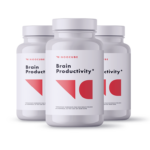Geodon (ziprasidone) is an atypical antipsychotic medication used to treat schizophrenia and bipolar disorder. It works by affecting dopamine and serotonin receptors in the brain, helping reduce hallucinations, delusions, and mood instability. Geodon can be prescribed for both acute episodes and long-term maintenance therapy.
How Does Geodon Work?
Geodon works by modulating neurotransmitter levels in the brain, specifically dopamine and serotonin, to reduce symptoms of psychosis and mania.
Key Benefits of Geodon
- Treats Schizophrenia and Bipolar Disorder: Effectively reduces psychotic symptoms and helps stabilize mood in bipolar disorder.
- Less Weight Gain: Compared to other antipsychotics, Geodon is associated with less weight gain.
- Dual Action: Treats both manic and depressive symptoms in bipolar disorder.
Potential Side Effects
Common side effects may include:
- Drowsiness or fatigue.
- Dizziness, especially when standing up (orthostatic hypotension).
- QT prolongation, which can affect heart rhythm.
Who Should Consider Using Geodon?
Geodon is ideal for individuals diagnosed with schizophrenia or bipolar disorder, particularly those needing long-term symptom management or those sensitive to weight gain from other antipsychotics.
Final Thoughts: Is Geodon Worth It?
From a medical standpoint, Geodon is an effective option for managing psychosis and bipolar disorder, especially for those concerned about the metabolic side effects often seen with other antipsychotics. However, its potential effect on heart rhythm requires careful monitoring by a healthcare provider. As with all antipsychotic medications, regular follow-ups are necessary to ensure it is effective and safe for long-term use.
Price and Availability
Geodon is available by prescription through pharmacies, and generic versions of ziprasidone are typically more affordable. Prices may vary depending on dosage and insurance coverage.
![Geodon Review [year] - Side Effects & Ingredients](https://www.miriamwellness.com/wp-content/uploads/2023/11/Geodon-Review-2023-Side-Effects-Ingredients-700x368.jpg)




